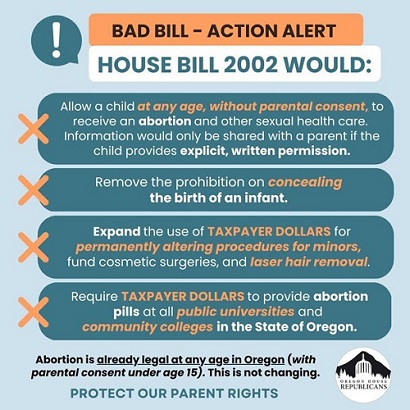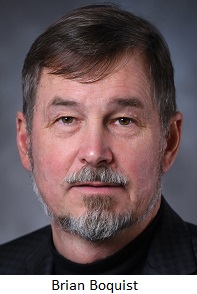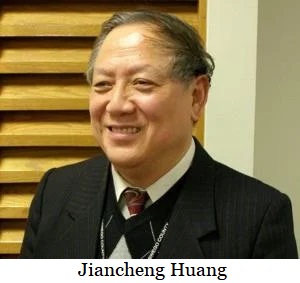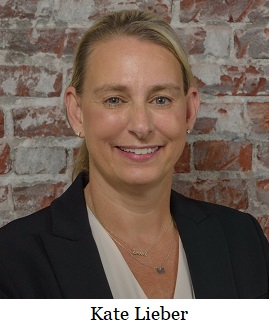
On this day, August 27, 2019, jet-car speed racer 30-year-old Jessi Combs, known by fans as the "fastest woman on four wheels," died in a crash in the Alvord Desert in Southeastern Oregon while trying to break a speed record.
 Post an Event
Post an Event
| Benton County Republicans’ Private Fundraising Event, “Bent-on Boots and Bling” with Trey Taylor |
| Friday, September 5, 2025 at 5:00 pm |
| Featuring Trey Taylor
Music Private Event
Friday, September 5, 2025 5:00-5:30 pm VIP Reception
5:30-8:00 pm Heavy Appetizers,
Auction, Concert
Red: $750 VIP Reception
Front Row Table Sponsor
White: $500 Table Sponsor
Blue: $50 per person
Limited Seating. Get Yours Now!!!
Support Local
Dress up: Bling, Cowboy, Patriotic Benton County Republican
FUNDRAISER
www.BentonGOP.org
Get your tickets today at:
https://www.bentongop.org/event-details/benton-county-republicans-fundraiser/form
About Trey:
Trey is the youngest African American Man in Country Music History. The Denver Post wrote
"It's impossible to miss his enthusiasm. With a fondness for cowboy boots, gaudy colors and dazzling jewelry, Trey Taylor could stand toe to toe with any of the Pop, Country or even Rap
contemporaries of his generation.“ |
| Trysting Tree Golf Club, 34028 NE Electric Rd., Corvallis |
Turn off your device while driving
Each year Oregon emphasizes the importance of transportation safety to its citizens, in April the emphasis is on distracted driving awareness. Oregon joins the nation in this recognition. On January 5, 2022, Kristopher W. Strickler, Director of the Oregon Transportation Commission issued
Consent Item 08 – Transportation Safety Programs – Declaration for 2023 “Distracted Driving Awareness Month†proposing April 2023 as Distracted Driving Awareness Month in Oregon.
The updated Oregon distracted driving law; also referred to as the cell phone law, went into effect October 1, 2017. Oregon’s basic law,
ORS 811.507, states it is illegal to drive while holding and using a mobile electronic device while driving (e.g. cell phone, tablet, GPS, laptop).
Over the past two years, the increase in traffic fatalities has erased over a decade of decline. Commissioner Strickler says, “It is important to emphasize the need for diligence and need for increased highway safety in Oregon.â€
The Oregon Department of Transportation (ODOT) is asking everyone to participate in the National Distracted Driving Enforcement Mobilization Campaign held April 3-10, 2023. The goal is to demonstrate a nationwide commitment to enforcing mobile electronic device laws in a fair and equitable way, and to reduce traffic crashes caused by distracted drivers, ultimately preventing deaths and injuries associated with cell phone use and texting while driving.
Distraction occurs when a driver diverts attention to something not related to driving that uses the driver's eyes, ears, hands or mind. Most distractions involve more than one of these types, both a sensory - eyes, ears or touch - and a mental component.
There are some exceptions, but for the most part, it’s best to just turn off your device when you are driving. Here are a few cases where the new law does not apply:
- When using hands-free or built-in devices, if you are 18 years of age or older.
- Use of a single touch or swipe to activate or deactivate the device.
- When parked safely, i.e., stopped in a designated parking spot. It is NOT legal to use the device when stopped at a stop light, stop sign, in traffic, etc.
- While providing or summoning medical help and no one else is available to make the call.
- Tow truck or bus drivers following the federal rules for CDL holders.
- When using a two-way radio if you are a CB user, school bus driver, utility truck driver in scope of employment.
- If you are a HAM radio operator age 18 years or older.
A D V E R T I S E M E N T

A D V E R T I S E M E N T
As of January 1, 2018, courts have the ability to waive the fine for first-time offenders who attend an approved Distracted Driving Avoidance course. Offense penalties are now a Class B violation with a maximum fine of $1,000 for first offense. A second offense, or if the first offense contributes to a crash, is Class A violation with a maximum fine of $2,000. A third offense in ten years is a Class B misdemeanor and could result in a maximum fine of $2,500 fine and could be 6 months in jail. For a first offense that does not contribute to a crash, the court may suspend the fine if the driver completes an approved distracted driving avoidance class, and shows proof to the court, within four months. Only the fine is suspended - the violation will still be recorded on the offender's driving record.
Marion County Officer looks for distracted drivers (Statesman Journal video)
Commissioner Strickler issued Consent 08, which reads:
- WHEREAS: Motor vehicle crashes are one of the leading causes of death and injury hospitalization in Oregon; and
- WHEREAS: Distracted driving is a serious, life-threatening practice that is preventable, yet is a national and statewide epidemic that can lead to crash fatalities for drivers and passengers, as well as, for people walking and rolling; and
- WHEREAS: In Oregon, between 2016-2020, there were 15,538 crashes involving a distracted driver resulting in 186 fatalities and 24,126 injuries; and
- WHEREAS: Distracted Driving is any activity that could divert a person’s attention from the primary task of driving; and
- WHEREAS: Studies show that using mobile electronic devices involves visual, auditory, manual, and cognitive distraction, and is among the worst of all driver distractions; and
- WHEREAS: Oregon law, as of 2018, prohibits the use of mobile electronic devices when operating a motor vehicle on public roadways; and
- WHEREAS: In order to reduce the number of crashes as well as improve Oregon’s driver safety culture, the Oregon Department of Transportation seeks to enhance the awareness, understanding, education and enforcement to stop distracted driving.
NOW,
- THEREFORE: We, the Oregon Transportation Commission hereby declare April 2023 to be DISTRACTED DRIVING SAFETY AWARENESS MONTH in Oregon and encourage all Oregonians to joining in this observance.
--Donna Bleiler| Post Date: 2023-04-03 15:15:14 | Last Update: 2023-04-03 15:42:12 |
New openings on ABCs
Clackamas County Commissioners
are seeking interested Clackamas County residents to serve on county Advisory Boards and Commissions (ABCs). These ABCs offer residents the opportunity to become very involved in specific activities and the goals of Clackamas County.
Individuals interested in this opportunity can
apply online or via a paper form that can be obtained from the Public & Government Affairs Department by calling 503-655-8751.
Clackamas County Audit Committee
This commission has one vacancy, carrying a two-year term aligned with the fiscal year end (July 1 to June 30). This vacancy will begin when the applicant is approved by the Board of County Commissioners, likely before the beginning of the fiscal year. The nine-member commission provides review and independent oversight of the County’s financial reporting processes, internal controls, and independent auditors.
Members must have the ability to attend all meetings and review materials, including audited financial statements and reports of Clackamas County and its eight blended component units of government. This committee meets at least twice annually, but the Committee may call additional meetings at its discretion. Applicants with knowledge of governmental or not-for-profit auditing, accounting, and financial reporting are encouraged to apply.
Application deadline is Wednesday, April 26. For more information,
contact Elizabeth Comfort, Finance Director, at 503-936-5345.
Clackamas County Library Advisory Board
The purpose of the Clackamas County Library Advisory Board is to represent the residents within the Oak Lodge Library and Gladstone Library Service Areas of the Clackamas County Library District, which was established by the approval of Measure 3-310, by providing community perspective to the Board of County Commissioners in matters concerning library services, policies, and library-related issues in general.
Board members have staggered four-year terms. This board currently has two vacancies:
- Oak Lodge member for unincorporated Oak Lodge (must reside within the unincorporated Oak Lodge Library Service Area)
- Gladstone member for unincorporated Gladstone (must reside within unincorporated Gladstone)
A D V E R T I S E M E N T

A D V E R T I S E M E N T
The responsibilities of the Advisory Board are as follows:
- Make recommendations concerning the library to the Library Manager and Board of County Commissioners (BCC).
- Review budget for compliance with existing legislative and policy guidelines.
- Recommend appointment of prospective members to the BCC.
- With guidance from staff, determine resolution of challenged materials.
- Assist in the development of short and long-term goals for the provision of library services to the community.
- Represent the needs, interests, and desires of library users and residents of the service areas.
Application deadline is Wednesday, May 3. For more information,
contact Mitzi Olson by phone at 503-655-8570.
Community Health Council
The Council currently has openings for 13 additional members, comprised of consumers, patients, and clients only. The Council oversees operations, budgets, and quality measures at the Health Centers clinics throughout the county. Per federal requirements, the Council must be composed of a majority of patient members, therefore current patients (or their guardians) will be given priority to join the Council to maintain compliance. The Council conducts business through public meetings that are held from 5 to 7:30 p.m. on the third Wednesday of each month in the County’s Development Services Building in Oregon City.
Budget
Note: Due to continuing COVID-19 restrictions, Clackamas County says these meetings are held in a virtual format until further notice.
Council members are not required to have expertise in healthcare but should be interested in improving the quality of care and patient experience in the Health Centers. Council members should be comfortable working with a diverse group of people and willing to reach consensus on various topics and make recommendations to Health Centers Leadership and the Board of County Commissioners. Individuals who represent all geographic areas and demographics are highly valued by the Council.
Application deadline is April 26. For more information,
contact Juliana Danforth.
--Ben Fisher| Post Date: 2023-04-02 09:37:05 | Last Update: 2023-04-02 10:08:29 |
Hospital staffing plan threatens health care
Oregon Representative Rob Nosse (D-Portland) is chief sponsor of
HB 2697, which would require hospitals to follow minimum staffing standards for nurses limiting how many patients can be assigned to a single nurse, and submit "staffing plans" to the Oregon Health Authority within three months of its passage, or risk harsh penalties. The bill could radically overhaul Oregon's nurse staffing law and make it among the first in the nation to create nurse-to-patient ratios.
Prior to COVID in 2015,
Senate Bill 469 passed updating Oregon's nurse staffing laws, including requiring hospitals to establish hospital nurse staffing committees to develop and approve hospital nurse staffing plans, and required the Oregon Health Authority to audit hospitals to determine compliance with staffing plan requirements. The Center for Medicare and Medicaid Services also requires nurses to have staffing plans for every patient which is addressed through the 485 Plan of Care orders signed by the provider to ensure the care needs of the patient is met. SB 469 passed to help nurses, so were they unable to govern themselves?
Even before COVID, a nursing shortage was predicted for the U.S. A survey conducted by the American Association of Critical Care Nurses in September 2021, reports that 92 percent said the pandemic had depleted nurses at their hospitals, mostly forced to leave over vaccination requirements and dissatisfaction with working conditions. As a result, they say their careers will be shorter than they intended and 62 percent continue to consider leaving the profession due to the COVID experiences.
Oregon is one of thirteen states that addresses nurse staffing in order to deliver the appropriate quality and mix of patient care and is one of seven states which require staffing committees in hospitals. The idea of hiring traveling nurses to fill the gap is no longer an option with a national shortage, especially on the west coast.
Oregon Association of Hospitals and Health Systems initially warned that ratios could force hospitals to cut back their services. Providence reports 750 open nursing positions in Oregon. Mandating minimum staffing models when there are no nurses to be had will not create a safer healthcare environment, it will create a healthcare environment in which providers close services rather than risk excessively large fines for failure to comply. If the workforce doesn’t exist, small, rural hospitals would not stand a chance with a one-size-fits-all approach.
A D V E R T I S E M E N T

A D V E R T I S E M E N T
Nurses may think this bill will get them more help, but when 64% of Oregon hospitals are operating in the red, this added cost will produce the opposite. If HB 2697 is implemented, rural hospitals are saying the most likely outcome will be a drastic reduction in hospital and home health services. Hospitals across the nation, including our local hospitals, have already reduced services because of an inability to staff beds. This is reflective of a nurse staffing shortage, not of an unwillingness on the part of hospitals to staff those beds and provide services.
Hospitals can't find the staff, so what good is enacting staffing ratios, increasing staffing committees from one to four, imposing binding arbitration, when there isn't enough staff to go around. It seems that staff forced out when Covid vaccinations were mandated, aren't willing to return even if the mandate is lifted.
The bill poses high civil penalties of $10,000 for each day the unit is staffed below standards, plus $200 for each missed meal or rest break. The consequences is higher healthcare insurance premiums and hospitals will be forced to limit patients in order to comply. This is not the answer to better health care.
--Donna Bleiler| Post Date: 2023-03-31 11:31:10 | Last Update: 2023-03-31 01:45:35 |
Only the fiercest mask enthusiasts persist with usage
The Clatsop County Department of Public Health is
now saying that because the Oregon Health Authority is doing so, the county will stop requiring individuals to wear masks when visiting public health offices beginning Monday, April 3.
The Oregon Health Authority is lifting its requirement for healthcare workers, patients and visitors in health care settings to wear face masks as COVID-19, RSV and seasonal Influenza infections have continued to decrease.
“We are committed to keeping people safe and preventing the further spread of these viruses,†said Jiancheng Huang, director of CLatsop County public health. “That means we will ask clients to wear a mask if they have any of the following symptoms:
- Fever or feeling feverish/chills
- Cough
- Sore throat
- Runny or stuffy nose
- Muscle or body aches
- Headaches
- Fatigue (tiredness)â€
Clatsop County Public Health Department says that they insist on rescheduling (refuse) an appointment if a client refuses to comply with the face mask request.
“We appreciate the public’s understanding and cooperation,†Huang said.
A D V E R T I S E M E N T

A D V E R T I S E M E N T
Jiancheng has been the Public Health Director in Clatsop County since July 2022. He comes to us from Oswego, New York, where he served as the Director of the Oswego County Health Department for 10 years.
During his tenure, the department won multiple awards for COVID response in 2021. Prior to his time in county public health, Jiancheng served as the director of the Maine Immunization Program where he changed the state from 41st to 14th in the nation for childhood vaccination rates.
He also served as an epidemiologist with the Maine Bureau of Health. Jiancheng earned his medical degree from Shanghai Second Medical University in Shanghai, China in 1987 and a master of science degree from Harvard School of Public Health in 1993.
--Ben Fisher| Post Date: 2023-03-30 10:40:48 | Last Update: 2023-03-30 21:47:48 |
First Time Since 2015
Recreational harvest of eulachon smelt on the Sandy River will be open Thursday, March 30 from noon to 7 p.m.
The open area will be from the mouth of the Sandy River upstream to the Stark Street Bridge with a limit of 10 pounds per dipper. Each dipper must have their own container. Harvest is allowed with dipnet only and smelt may only be caught from the bank. Each dipper must also have a valid 2023 Oregon angling license.
The 10-pound limit is roughly ¼ of a five-gallon bucket or a full 5-quart bucket. Anglers should bring scales to ensure they do not exceed the legal limit.
The eulachon smelt spends most of its life in the ocean, migrating up rivers, including the Columbia and some of its tributaries, to spawn. They grow to be 6-9 inches long and live 3-5 years. Most adults die shortly after spawning, so it is not uncommon to see large numbers of dead smelt along the river.
While Columbia River eulachon smelt were listed as threatened under the Endangered Species Act in 2010, abundance has recently increased to a level that allows limited, conservative harvest.
A D V E R T I S E M E N T

A D V E R T I S E M E N T
Although eulachon smelt return annually to the Columbia River, they only return to the Sandy River periodically, and this is the first time they have been seen in any numbers here since 2015. "We're happy to provide an opportunity for recreational smelt dipping this year," said Tucker Jones, Columbia River Program Manager. "We know it's short notice, but the eulachon smelt will not be present for long in the Sandy, and we're already seeing some post-spawn die-offs." ODFW is hopeful that providing afternoon opportunity during Oregon's spring break will allow access to this somewhat rare opportunity before the smelt are gone from the system.
"Initially we were concerned that the timing of the smelt return would overlap with releases of hatchery spring Chinook smolts which would make a fishery impossible, but after consulting with district fish biologists, we've determined that we are actually in a sweet spot between releases," Jones added.
--Ritch Hanneman| Post Date: 2023-03-29 14:29:23 | Last Update: 2023-03-29 18:13:38 |
Chair dismisses seriousness of testimony
Last week, the House Committee on Behavioral Health and Health Care held a record 5-hour public hearing on
HB 2002. Opponents made a strong showing during the committee hearing and submitted 476 pieces of written testimony compared to 380 from proponents.
HB 2002 is a shocking collection of radical social policies targeting minors:

Representative Shelly Boshart Davis (R-Tangent) put out a statement saying, "the Legislature needs to decide who is an adult in the state of Oregon. In Oregon, children under the age of 18 cannot get a tattoo or pierce their ears or nose without parental consent, and going to a tanning bed is not allowed even if the parent says it is okay. This bill would allow a minor, at any age, to get an abortion without parental consent and allows minors to get "gender-affirming care" without parental consent. But in this session, bills have been introduced to:
- allow 16-year-olds to vote
- ban flavored tobacco to all ages because minors are unable to make informed health decisions
- raise the age to buy a hunting rifle to 21
Boshart Davis continues, "Regardless of where you stand on abortion, most Oregonians agree that our laws are too extreme. This bill makes our laws even more extreme by legalizing hiding whether a baby was born alive or dead. In addition, this bill would make it even easier for kids with gender dysphoria to make permanent, life-altering decisions about their bodies without parents' knowledge."
This bill would remove a parent’s role in their child’s life by:
- Eliminating any age of consent requirements for “reproductive health careâ€, including abortion, despite parental consent still being required for any necessary emergency care as a result.
- Requiring written permission from a child of any age in order for a parent to know what reproductive health services are provided by a health care provider.
- Authorizing a pharmacist to provide abortion pills without regard to the age of the person.
- Repeals the law against concealing the birth of an infant—paving the way to conceal the death of an infant.
- Allows a child to bypass parents for "gender affirming care."
A D V E R T I S E M E N T

A D V E R T I S E M E N T
Here are a few of the highlights from the hearing:
Representative Lucetta Elmer gave a powerful testimony about how her birth mother chose life for her because the culture in the 1970s valued life, even if it was inconvenient.
Camille Kiefel from Milwaukie, Oregon, bravely told her story about her experience with "gender-affirming care." Her anxiety and trauma from when she was young led her to remove her breasts to escape that trauma. She now regrets that procedure and is speaking out against HB 2002. After sharing her visible pain, Chair Rob Nosse (D-Portland), thanked her and with a great deal of bias, dismissed the seriousness of her testimony and told her he doesn’t share her position on the bill.
Representative Lily Morgan asked the Oregon Department of Justice why we would want to repeal the crime of concealing the birth of an infant, and their response was shocking.
Work session is scheduled for March 27.
--Donna Bleiler| Post Date: 2023-03-27 16:17:41 | Last Update: 2023-03-27 21:55:45 |
Deadline is fast approaching
With the start of spring comes the annual deadline to remove studded tires. Oregon drivers
must remove studded tires from their vehicles by Friday, March 31.
“We encourage drivers to not wait until March 31 to remove their studded tires, especially if they aren’t driving in the mountain passes between now and then,†said Galen McGill, State Maintenance and Operations Engineer.
Drivers with studded tires on their vehicles after the March 31 deadline may receive a citation from law enforcement for a Class C traffic violation, which carries a presumptive fine of $165.
While studded tires are allowed in Oregon from Nov. 1 through March 31, drivers are urged to use alternatives, such as traction tires and chains.
A D V E R T I S E M E N T

A D V E R T I S E M E N T
A 2014 study showed studded tires cause about $8.5 million in damage each year to state highways.
ODOT maintenance crews continue to monitor highways and weather forecasts and work to remove any late season snow or ice as soon as possible.
Whenever you travel, plan for the weather and visit TripCheck.com for road condition information. After March 31, use other types of traction tires or chains if needed, or postpone your travel until conditions improve.
--Ben Fisher| Post Date: 2023-03-27 13:32:50 | Last Update: 2023-03-27 13:49:49 |
Protections intended are destroying transparency
Secretary of State Shemia Fagan has requested
SB 166, which at first glance, it appears to protect voters and election workers. Fagan testified, “We build trust by removing barriers to voting, providing accurate information, and supporting Oregon’s 36 county clerks who process ballots and report accurate results.â€
Fagan presents the Election Security Bill (SB 166) as having three security pillars that will help restore public confidence in our elections systems.
- Affirming the right to vote and she says, “the right to a secret ballot is an important fundamental right for Oregonians would help reassure voters that their vote is secure and that their ballot is their own business.†What the Secretary fails to mention is the bill seriously limits public records requests and gives her full authority to define by rule what information would be public or withheld. She is also allowed to determine security measures, and the bill expands the definition of security plan as to what is confidential.
- Expands protecting the safety of election workers passed in 2022 under HB 4144, which enacted misdemeanor penalties for threatening or harassing election workers. Fagan based replacing the penalty with a Class C felony on the January 6 Report, not on any incident in Oregon since the passage of HB 4144 that would support increasing the penalty.
- Improving elections security at the county level allowing the Secretary of State additional time and greater ability to evaluate the threat that environment security plans are intended to address, by adding cybersecurity and physical security to their scope, and by requiring security plans to be consistent with best practices as defined by federal authorities. Aggravated harassment is already a Class C felony in ORS 166.070(2) and for computer (device) crimes in ORS 164.377.
Secretary Fagan has her comical video campaign to reassure voters that there is transparency throughout the voting system, all the while she was telling clerks to find reasons to increase charges for public requests to discourage requests. Now she wants to frighten observers away, and virtually eliminate any useful information through public requests.
SB 166's most aggressive attack against fair and transparent elections is the expanding of confidential information that includes the security plan, and all communications relating to the development and review of a security plan that is filed by the county clerks. It includes all their procedures, security agreements, cybersecurity procedures for the process of casting and tallying ballots, storing, scanning, pre-voting tally system checks, post-election ballot security, and any other security measure the Secretary requires by rule.
This goes directly back to the case of
Washington County vs. Tim Sippel in which Washington County was joined by Attorney General, Ellen Rosenblum, and the Secretary of State Shemia Fagan to prevent the release of the voting SQL zip file saying the public has no interest or need to know. The SQL files are the tests run on the machines prior to the elections to see that the machines are operating correctly. It takes data from various tables it has access to, and it can manipulate that data to come up with an answer according to its protocol.
After this case came to light, the Secretary encouraged counties to increase their fees to discourage requests for Cast Vote Records. What the citizens group “Clean Voter Rolls†discovered was what was once $30 to $465 went up to a high at $982,896.17 from Jackson County, $93,000 in Deschutes County and $52,000 in Douglas County, and many others were in tens of thousands as a result. Washington County Deputy District Attorney Jason Ring wrote in review of a $65,223.50 fee, “we find on these facts that the amount of this fee in comparison to the nature of the request “suggests†that its true purpose is to constructively deny the request.†He further notes that the Secretary was looking for ways to respond to legitimate requests while discouraging others.
Ring writes, “this reporting demonstrates that elections officials strongly disapprove of elections-related public records requests.†Meaning, they don’t want the public watching over their shoulders. Ironically, progressive San Francisco publishes the Cast Vote Record on their website after the election for everyone to see.
A D V E R T I S E M E N T

A D V E R T I S E M E N T
Janice Dysinger, Oregonians for Fair Elections and Election Integrity, is a seasoned veteran on public record requests. She has been requesting Cast Vote Records for years, which is a computer print-out of the tabulators as they progress through the election. She says, “it is the only document we can see if anything happened in our election that was irregular. There is little any citizen can do to check the security and truth of the election without these reports.†In her experience, the county used to print out all the actions the tabulators took as the ballots progressed through the count. But the printout was done away with when votes started to be counted prior to election day. Now this record accumulates in the tabulators and is easily produced from a simple command.
Dysinger says, “SB 166 is using voter security to keep me from regular records requests because a few people might have written their name on their ballot. A lot of effort goes into keeping voters unidentified, but if a voter writes their name on their ballot, they are choosing to be identified.†District Attorney Ring concluded the same thing in his opinion on the Washington County data.
SB 166 will prohibit the public from this information. One county told Dysinger that the vendor instructed them not to release Cast Vote Records because it contained proprietary information. That type of harassment and intimidation isn’t covered in SB 166. It is obvious the Secretary of State does not want the public to have a transparent voting system.
According to Dysinger, if
SB 166 passes, a voter can never challenge an election result or have any valid means to prove the simplest fraudulent acts or to request a forensic audit.
--Donna Bleiler| Post Date: 2023-03-26 08:48:05 | Last Update: 2023-03-26 09:58:00 |
Governor Tina Kotek declares drought through executive order
Oregon Governor Tina Kotek
declared a drought in Grant and Deschutes counties through Executive Order 23-08, and directed state agencies to coordinate and prioritize assistance to the region.
Both counties have portions of extreme drought (D3) and are experiencing well below average water year precipitation. Streamflow has also been well below average in both counties over the water year, with Deschutes at 78% and Grant at 44% of its average streamflow. Likewise, streamflow at their respective basins have been below average, with Deschutes at 71% and John Day at 39%.
Reservoir conditions in the Deschutes Basin are approaching historic lows and soil moisture conditions across surface, root zone and shallow groundwater profiles are extremely dry.
Above average snowpack conditions, 117% in Deschutes and 154% in John Day, will provide limited relief to drought conditions in some parts of each county.
A D V E R T I S E M E N T

A D V E R T I S E M E N T
The drought declaration by Governor Kotek unlocks a number of drought-related emergency tools for water users, including assistance to local water users. Drought declarations also allow the Water Resources Department to expedite review processes and reduce fee schedules.
The Oregon Drought Readiness Council, a standing body composed of natural resource, public health, and emergency response agencies, received requests from the Grant County Court and Deschutes County Board of Commissioners in March requesting Governor’s drought declarations.
The council received input from
Oregon’s Water Supply Availability Committee on regional water supply conditions and Council members have conferred on this matter. The Council recommended that the Governor declare drought in Grant and Deschutes Counties for the 2023 calendar year, pursuant to Oregon Revised Statutes (ORS) 536.740.
As state and local officials coordinate with federal partners, conditions will be closely monitored by the state’s natural resource and public safety agencies, including the
Oregon Water Resources Department and the
Oregon Department of Emergency Management.
--Ben Fisher| Post Date: 2023-03-25 15:55:25 | Last Update: 2023-03-25 16:26:20 |
Will Governor Kotek sign SB 422?
Defensive driving takes on a new element if
SB 422 becomes law. It will allow motorcyclists to avoid dangers of stop-and-go traffic by traveling between lanes of traffic under certain conditions.
The Oregon Senate passed SB 422 with strong bipartisan support. This measure would permit motorcyclists to filter between lanes of slow or stopped traffic on multi-lane roads. The practice is meant to allow motorcycles to continue moving when the general flow of traffic is slow or stopped, to prevent overheating of motorcycle engines and rider fatigue, and to protect the safety of riders by reducing the risk of rear-end collisions in areas with high levels of traffic congestion.
In 2021, the Legislative Assembly passed
Senate Bill 574, which would have created a conditional exemption to the violation of motorcycle or moped unlawful passing in a lane with a vehicle to allow lane splitting in certain circumstances, but the measure was vetoed by Governor Brown. Similar to SB 547, Senate Bill 422 allows filtering where traffic is either stopped or has slowed to a speed of 10 miles per hour or less, a person operating a two-wheeled motorcycle may pass the stopped or slowed vehicle at a speed no more than 10 miles per hour above the speed of traffic, they do not impede normal movement of traffic, and they merge with regular traffic flow once the speed of traffic exceeds 10 miles per hour.
Filtering only applies on interstate highways or roads with a designated speed of 50 miles per hour or higher with two or more lanes in a single direction and does not apply in certain school zones. The measure also does not permit operating a motorcycle on the road shoulder (on either side of the road), on the center line (to the left of the left-most lane), or in highway work zones. Lane filtering is still prohibited on the road shoulder, the center line between traffic going in opposite directions, or in highway work zones.
A D V E R T I S E M E N T

A D V E R T I S E M E N T
"Lane filtering is a safe and effective practice in other states and countries," said Senator Michael Dembrow (D-Portland), Co-Chief Sponsor of Senate Bill 422. "By allowing this limited, common-sense practice in Oregon, we can improve traffic flow and reduce the risk to
motorcyclists while keeping our roads safer for all.â€
Motorcyclists have long argued that lane filtering can improve safety by lowering the risk of rear-end collisions and reduce traffic congestion.
SB 422 now moves to the Oregon House of Representatives for consideration.
--Dollie Banner| Post Date: 2023-03-25 12:38:00 | Last Update: 2023-03-24 18:34:48 |
Who wants to be a police officer in Portland?
Portland Oregon Mayor Ted Wheeler and Chief Chuck Lovell, along with other members of the Portland City Council,
welcomed 15 new police officers and 9 professional staff members to the Portland Police Bureau just recently. Commissioner Dan Ryan and Commissioner Rene Gonzalez also attended
the ceremony and shared remarks with the new hires.
The Portland Police Bureau now has 810 sworn members.
This includes all ranks from the Chief to the 551 officers. Of those officers, 108 are in training.
There are currently 314 patrol officers assigned to precincts.
PPB says it is building back from its lowest number of sworn members, which was 773 in September 2022. This was the fewest sworn members since 1989. The lowest number of members at the rank of officer was in May 2022, when there were 509 out of 609 authorized.
PPB is stating that the recruiting and hiring efforts continue to yield results. PPB has hired 96 officers and 31 Public Safety Support Specialists since January 2022. Four former PPB officers have applied to return and are in the rehire process.
PPB says that eighty-three officer applicants are in the background investigation process right now.
A D V E R T I S E M E N T

A D V E R T I S E M E N T
Over the past year, (March 16, 2022 – March 16, 2023), there have been 1519 police officer applicants. The PPB Personnel Division has refined the hiring process and shortened it substantially, 6 months or less in most cases.
PPB says it takes some time before new officers are fully trained and working by themselves in patrol cars. The training process for a new hire is 18 months, including the Basic Police Academy at the Department of Public Safety Standards and Training in Salem, a PPB Advanced Academy, and field training with a coach.
Also just recently, the Bureau also hired 9 professional staff, including Police Records Specialists, 2 Mental Health Crisis Responders for the Behavioral Health Unit, a Training Analyst, a Property Division Public Safety Aide, a Crime Victim Advocate with the Detective Division, and a Police Administrative Support Specialist. PPB also promoted two Police Records Specialists to Police Records Training Coordinators.
The Portland Police Bureau says that they still have sworn vacancies and
they continue hiring both lateral and entry level community police officers. Salary ranges $75k-$107k per year plus pay incentives. Benefits are 95% paid by the city.
--Ben Fisher| Post Date: 2023-03-24 22:19:46 | Last Update: 2023-03-24 22:37:23 |
It turns the Commission into a police agency
Before Governor Brown left office, she requested
SB 207 be introduced as the Government Ethics and Accountability Measure. The Senate passed SB 207 authorizing the Oregon Government Ethics Commission to proceed on its own motion to review and investigate, if the Commission has reason to believe that a public body conducted meetings in executive session that were not in compliance with laws authorizing executive sessions. It passed the Senate with 100% support from Democrats and 5 Republicans.
On the face of it, SB 207 may be a good monitor on alleged wayward and or negligent public bodies with reference to procedural responsibilities. However, the bill gives the Oregon Government Ethics Commission’s lawyers, whom are the Attorney General, the authority to initiate complaints, with the commission’s approval, against elected officials who might have violated executive session laws, but exempts the Legislative Assembly. It turns the Commission into a police agency instead of a complaint driven agency.
The Senate Majority Leader Kate Lieber (D-Beaverton) claims the bill provides consistency for the Oregon Government Ethics Commission by allowing the Commission to provide uniform oversight across all three areas of its jurisdiction – Ethics, Lobby, and Executive Session laws.
Currently, the Commission is allowed to open cases by a motion of Commissioners when it has credible information about a potential violation of Ethics or Lobby laws. This legislation will allow the Commission to open cases on its own motion when it has credible information indicating potential violations of Oregon’s executive session laws.
A D V E R T I S E M E N T

A D V E R T I S E M E N T
Senate Majority Leader Lieber said “Government works best when it is accountable to the people. By providing consistency for OGEC, we will support the Commission’s work to impartially and effectively administer and enforce Oregon’s government ethics laws for the benefit of Oregon’s citizens.†She also points to, “improving government accountability and efficiency are key to Senate Democrats’ 2023 Oregon Works Agenda.â€
However, Senator Brian Boquist(I-Polk/Yamhill) questions who they are trying to hold accountable.

“It is hypocrisy. Just as the Attorney General’s self-investigation into OLCC and legislative corruption. Do as I say not as I do. The legislature ignores Masons Rules daily including open deliberations i.e. executive sessions. The Senate Rules including open deliberations are violated daily. The Senate violates the Oregon Constitution Article IV Section 14 requiring open deliberations daily along with other constitutional clauses. Yet, the Oregon State Senate voted to use the Attorney General and Ethics Commission to root out elected city, county and district public officials. It is hypocrisy and a legal double standard. If the Legislative Assembly wants ethical standards it needs to police itself before policing local government. SB 207 should either die in the House, or be amended to include the Legislative Assembly which is likely unconstitutional. Since the Legislature does not appear capable of leading by example, then SB 207 should die in the House. We can maybe be hopeful future elections will restore ethical standards to the legislative process at all levels. Voters need to hold public officials accountable.â€
SB 207 now heads to the Oregon House of Representatives for consideration.
--Donna Bleiler| Post Date: 2023-03-24 16:24:44 | Last Update: 2023-03-24 19:29:28 |
Read More Articles































 “It is hypocrisy. Just as the Attorney General’s self-investigation into OLCC and legislative corruption. Do as I say not as I do. The legislature ignores Masons Rules daily including open deliberations i.e. executive sessions. The Senate Rules including open deliberations are violated daily. The Senate violates the Oregon Constitution Article IV Section 14 requiring open deliberations daily along with other constitutional clauses. Yet, the Oregon State Senate voted to use the Attorney General and Ethics Commission to root out elected city, county and district public officials. It is hypocrisy and a legal double standard. If the Legislative Assembly wants ethical standards it needs to police itself before policing local government. SB 207 should either die in the House, or be amended to include the Legislative Assembly which is likely unconstitutional. Since the Legislature does not appear capable of leading by example, then SB 207 should die in the House. We can maybe be hopeful future elections will restore ethical standards to the legislative process at all levels. Voters need to hold public officials accountable.â€
“It is hypocrisy. Just as the Attorney General’s self-investigation into OLCC and legislative corruption. Do as I say not as I do. The legislature ignores Masons Rules daily including open deliberations i.e. executive sessions. The Senate Rules including open deliberations are violated daily. The Senate violates the Oregon Constitution Article IV Section 14 requiring open deliberations daily along with other constitutional clauses. Yet, the Oregon State Senate voted to use the Attorney General and Ethics Commission to root out elected city, county and district public officials. It is hypocrisy and a legal double standard. If the Legislative Assembly wants ethical standards it needs to police itself before policing local government. SB 207 should either die in the House, or be amended to include the Legislative Assembly which is likely unconstitutional. Since the Legislature does not appear capable of leading by example, then SB 207 should die in the House. We can maybe be hopeful future elections will restore ethical standards to the legislative process at all levels. Voters need to hold public officials accountable.â€